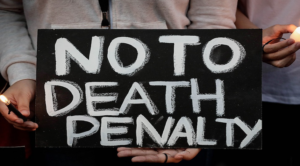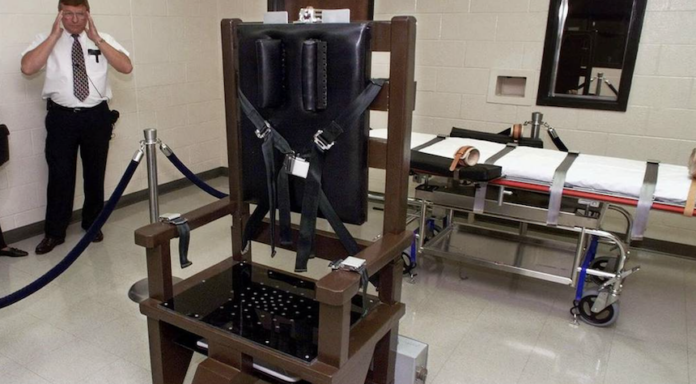When I was growing up in Texas, the death penalty was an everyday part of life. If you turn on the local 5 o’clock television news, an execution is announced as if it were any other news item. Teenagers made jokes about “riding lightning” when the lights flickered. Texas natives felt the same way in the 1990s and 2000s. Nan Tolson a 28-year-old Texan who was raised outside of Dallas said, “We executed people for horrible crimes and that was it, that was their punishment.”
The death penalty was as deeply rooted in Texas culture, as football and tacos are. I say “was,” because there is now a subtle groundswell in support for abolishing capital punishment not only in Texas but throughout the country. According to the Death Penalty Information Center (DPIC), public support for capital punishment has been declining over the past 25 years and is now nearing record-low levels.
 There is no evidence that the death penalty works as a deterrent to crime. This is one of the most common misconceptions. Tolson says that if we are concerned about crime or public safety, the death penalty should not be included in the equation. It doesn’t serve this purpose. She has held positions at the Office of the Texas Governor’s communications department where she rose to the position of deputy press secretary. Tolson is currently the director of Texas Conservatives Concerned about the Death Penalty.
There is no evidence that the death penalty works as a deterrent to crime. This is one of the most common misconceptions. Tolson says that if we are concerned about crime or public safety, the death penalty should not be included in the equation. It doesn’t serve this purpose. She has held positions at the Office of the Texas Governor’s communications department where she rose to the position of deputy press secretary. Tolson is currently the director of Texas Conservatives Concerned about the Death Penalty.
It’s possible that capital punishment could be used as an incentive within prison walls. Last year I had lunch in the company of Ron Wright. Wright was wrongfully convicted in 2013 of first-degree homicide and exonerated by the Florida Supreme Court in 2016 due to misconduct on behalf of officials and lack of evidence. Wright said that life without parole was a harsher sentence because it provided prisoners a way to escape their punishment. Guards are required to be extra vigilant when it comes to inmates who have been given life sentences. This is because if a guard were killed, the death penalty would apply. Death therefore seems more appealing than a life sentence.
Why do we support the death penalty if it doesn’t reduce crime? Tolson says that, beyond myths and concerns surrounding capital punishment it comes down to an emotional process. “As a conservative that values limited government, it makes me uncomfortable to see the government seek revenge on my behalf.” She also asserts that as a Christian she believes that the state should not have the authority to end a person’s life.

When I look at the many government failures, (healthcare system, postal service border security, expenditure – the list goes on), as a conservative Catholic, it is hard to believe that the system can accurately determine who will live and die.
As attention has grown to wrongful convictions, the popularity and use of the death sentence have decreased. The question that lingers is how many innocent lives must be sacrificed to maintain this punishment.
Even at the state level, legal changes to criminal justice are massive undertakings. Therefore, sweeping reforms will not be happening anytime soon. It is interesting to consider the policy priorities of millennials, those born between 1984 and 1999 who will soon dominate the Capitol and Congressional buildings. Only time will reveal the millennials’ stance on abortion on demand and their growing skepticism towards the death penalty.
Richard Glossip’s appeal before the United States Supreme Court is a good indication of things to come. Glossip, who was sentenced to death in Oklahoma for a murder for which he had been convicted, has spent 26 years on the death row despite another person confessing. The state admits mistakes and supports Glossip in his request for a new court trial. However, the Oklahoma Court of Criminal Appeals denied the plea and allowed the execution to still take place. This case is a turning point for capital punishment in America and will have a profound impact on millennials. Brown v. Board of Education is a case that may be familiar to Gen Xers. These landmark decisions leave a lasting impact.
“My parents were in favor of the death penalty before I became concerned about it”, Tolson says, “It wasn’t a topic they thought about deeply; they simply saw it as an everyday practice to keep us safe.” “After I started researching it and learning more, I began to have conversations with them.” “They’re still conservatives but they’re now staunchly opposed to the death penalty.” “They heard me, as a conservative, discuss it and frame it within our common values.”










